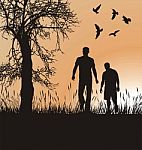Share
 TO SLEEP WELL. Part 3 of 4. What’s eating, drinking and exercising got to do with it ?
TO SLEEP WELL. Part 3 of 4. What’s eating, drinking and exercising got to do with it ?
By Dr Beverley Lewis, Clinical Hypnotherapist
How to eat, drink and exercise to promote good sleep.
The Simple Facts.
Not many people know that as well as having a “master” body clock in our brain that keeps us “in rhythm” with our natural environment, we have “peripheral” body clocks. These peripheral clocks are located in many of our organs such as the liver, kidney, heart, gastrointestinal tract, skin, adrenal and thyroid glands. And the more these peripheral clocks are “in sync” with our master body clock, the healthier we function.
Interestingly, the timing, size and regularity of all meals and exercise influences our waking and sleep cycles. The peripheral organs adjust their clocks on a daily basis, within hours of a change in meal times and size or exercise.
The Simple Strategies.
Having meals around the same time each day helps to keep the master body clock in our brain stable as well as the other peripheral body clocks.
BREAKFAST:
Waking up to have a good-sized breakfast, any time from around 6 am – 8 am, confers many health advantages in addition to being of assistance with establishing the appropriate sleep time at the end of the day.
LUNCH :
Where possible, lunch is a satisfying meal ingested around 12 pm – 2 pm. This is when our ability to digest food well is optimal.
DINNER :
An appropriate time to begin the evening meal is between 6 pm – 7 pm or a good 2-3 hours before bedtime.
Choose simple, preferably non-processed foods that are satisfying and not “heavy” or difficult to digest. Soups, cooked vegetables and salads with some source of protein such as egg or fish are good options.
Foods that may affect sleep include high protein foods and foods that contain the amino acid – derived chemical tyramine eg red wine, bacon,ham,pepperoni,eggplant, rasberries, avacardo, nuts and soy sauce.
Good food choices include those that contain tryptophan eg bananas,dates,tuna,turkey,yoghurt,milk and carbohydrates like bread and cereal. hence Drinking some warm milk about 20 minutes before going to bed can be useful so to can a cup of camomile tea.
Other Things To Avoid
CAFFEINE Having coffee, tea, cola, “energy” drinks, chocolate or anything else containing caffeine will act as a stimulant that can impair your ability to get to sleep. Avoid caffeine at least 4 hours before going to sleep.
NB. Some people process caffeine more slowly than others and therefore a cup of coffee drunk in the late morning could still have a stimulating effect on the body even 11 – 12 hours later.
ALCOHOL Many people believe that alcohol is relaxing and helps them to get to sleep. This may be true initially however the poor digestion of alcohol tends to wake individuals at around 1 – 2 a.m. and the important REM (Rapid Eye Movement) part of the sleep cycle is interrupted. The alcohol can also cause sleep apnoea (disruption to breathing) and snoring. For all these reasons the individual can wake feeling more fatigued the next day.
To put it simply, “Alcohol is a chemical and the brain is a soup of chemicals. Alcohol gets in there and mucks up the soup that is relevant to sleep” (London Sleep Centre researcher).
The recommendation is that it is best to avoid any form of alcohol for at least 4 – 6 hours before going to bed.
NICOTINE Smoking cigarettes 2 – 3 hours before bed can make it more difficult to sleep.
 The Benefits of Exercise for Sleep
The Benefits of Exercise for Sleep
Exercise for at least 30 minutes per day has a profound influence on health and specifically on the quality and quantity of sleep.
Exercising at any time of the day except within 3 hours of bedtime is generally a good way to prepare your body for a sound night’s sleep.
However a gentle walk at night can be relaxing.
